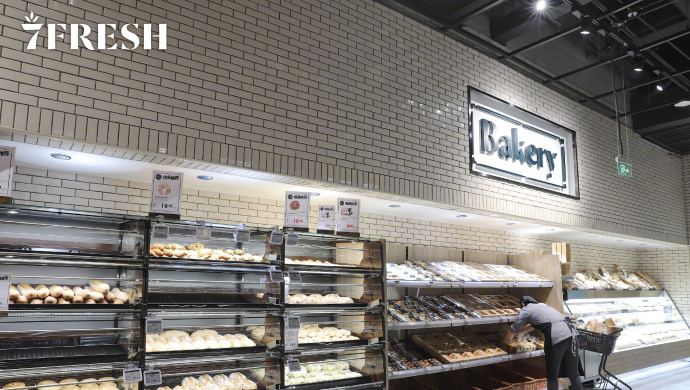Its chain of supermarkets is called “7Fresh”, and it will feature smart tech

Chinese e-commerce giant JD.com has officially launched its chain of supermarket stores, called “7Fresh”, going head to head with”Hema”, a similar supermarket enterprise operated by its main competitor Alibaba.
Like Hema, 7Fresh will blend smart technology with offline shopping mechanisms. For example, shoppers will be able to check a food item’s nutritional value by scanning it on a screen. It will also feature robot carts that will follow shoppers around as they walk through the aisles.
Beyond that 7Fresh will also provide shoppers with the option of having their groceries delivered to their homes within 30 minutes.
7Fresh will also feature a restaurant that offers a range of food that will be cooked on-site.
Wang Xiaosong, CEO of 7Fresh’s, said that JD.com’s position as a large-scale retailer coupled with its logistics supply chain will allow 7Fresh to deliver this new premium service. Its first outlet store has already logged 10,000 customers within the first two days of operation.
Also Read: JD.com puts US$44M into Vietnamese e-commerce platform Tiki.vn to fight Lazada
While JD’s new supermarket chain isn’t its first foray into the brick-and-mortar retail space, it is its most significant to date. Previously, the company opened a series of offline shops called “JD Retail Experience Stores“, which allows customers to try out products sold on its e-commerce platform. The stores tailor their product inventories based on customers’ shopping data.
A few weeks ago, JD.com also announced it will launch a series of unmanned stores, implementing hi-tech features such as cameras with facial recognition, image recognition and heating mapping technology to track shoppers. The stores will also come outfitted with Radio Frequency Identification (RFID) technology.
The battle for dominion over China’s physical retail space is expected to heat up as Chinese tech giants continue to invest heavily in this space. Last year, Alibaba poured US$2.88 billion into Sun Art, a leading multi-format offline food retailer in China; its rival, Tencent, agreed to purchase a 5 per cent stake in Yonghui Superstores, a leading Chinese supermarket chain.
The idea is that boosting their offline footprint — and reaching out to traditional customers — will also translate to increased traffic for their primary online platforms.
—
Image Credit: JD.com
The post JD.com launches supermarket chain to compete with rival Alibaba appeared first on e27.